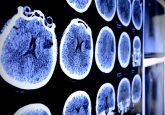Novel biomarkers found for early-onset Alzheimer’s disease
Researchers uncover significant change in biomarkers for early Alzheimer’s disease after patients develop dementia.
A team of scientists from Washington University in St. Louis (MO, USA) has reported that three biomarkers being studied to detect early-stage Alzheimer’s disease undergo a significant change as patients develop symptoms of dementia.
The group, led by Anne Fagan, Professor of Neurology at the university, investigated three injury-related biomarkers in spinal fluid samples collected from research volunteers. Used to assess brain changes linked to Alzheimer’s disease, the levels of these biomarkers have been previously found to increase in spinal fluid for over a decade before the onset of dementia; however, for the first time it has now been demonstrated that they later decrease as the symptoms of the disease become apparent.
Commenting on the results, Fagan said, “We are not sure why this reversal occurs, but understanding it may be very important for clinical trials of drugs to treat or prevent Alzheimer’s disease. Changes in the levels of these biomarkers will likely be among the criteria we use to assess the success or failure of Alzheimer’s disease drugs, so we need to know how these biomarkers normally behave in the absence of treatment.”
Data from the study were collected from the Dominantly Inherited Alzheimer’s Network, a multinational research project led by Washington University, where all participants come from families affected by genetic mutations that cause rare inherited forms of Alzheimer’s disease. In this latest research, all of the volunteers had an Alzheimer’s disease causing mutation.
Although the drop in biomarker levels was relatively small, the scientists note that they were consistent and statistically significant. “This was very interesting given that previous studies have shown that other indicators of Alzheimer’s disease, such as brain shrinkage, continue after the onset of dementia”, Fagan explained. “Additional data taken over longer periods of time will help us draw more definitive conclusions.”
Sources: Fagan AM, Xiong C, Jasielec MS et al. Longitudinal change in CSF biomarkers in autosomal-dominant Alzheimer’s disease. Sci. Transl. Med. 6(226), 226–230 (2014); Biomarkers of cell death in Alzheimer’s reverse course after symptom onset.




